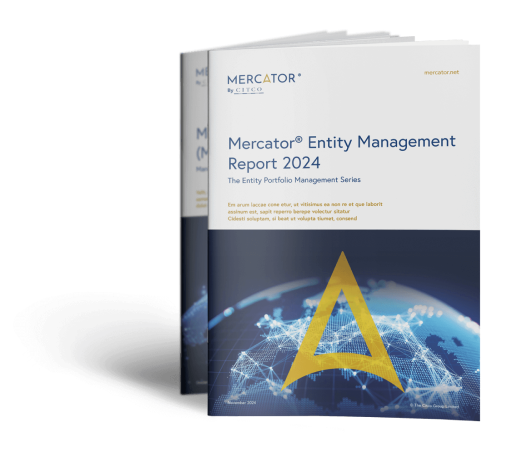The information contained in this document is marketing material and for informational purposes only. The information contained in this document is presented without any warranty or representation as to its accuracy or completeness and all implied representations or warranties of any kind are hereby disclaimed. Recipients of this document, whether clients or otherwise, should not act or refrain from acting on the basis of any information included in this document without seeking appropriate professional advice. The provision of the information contained in this document does not establish any express or implied duty or obligation between Citco and any recipient and neither Citco nor any of its shareholders, members, directors, principals or personnel shall be responsible or liable for results arising from the use or reliance of the information contained in this document including, without limitation, any loss (whether direct, indirect, in contract, tort or otherwise) arising from any decision made or action taken by any party in reliance upon the information contained in this document. © The Citco Group Limited, December 2024.
UBO Special Report: Key findings
Increased demand for corporate transparency and growing regulatory scrutiny has seen 106 jurisdictions across the world introduce Ultimate Beneficial Owner (UBO) reporting requirements.
UBOs are the individuals or entities with financial control or ownership of a company. The definition of who constitutes a UBO varies between jurisdictions, but generally, a UBO is defined as an individual who holds a minimum of 10-25% of capital or voting rights in the underlying entity.
As UBO requirements have come into force across more territories, they have been complicated by discrepancies and varying definitions, applicable rules and reporting processes between jurisdictions. This brings challenges for multinationals to remain up-to-date and compliant – with the risks of non-compliance extending to multi-million-dollar penalties and even criminal prosecution.
About the report
Mercator® by Citco’s (Mercator) UBO Special Report provides insight into dynamics and nuances of managing and maintaining UBO requirements across the world.
The report charts the costs and time it takes multinationals to complete UBO-related activities, based on data drawn directly from Entica® – Mercator’s custom-built technology platform – which individually records all corporate activities that clients undertake when managing their entity portfolios.
What jurisdiction comes out on top?
Overall, the data places the United Kingdom on top with competitive cost levels, straightforward reporting requirements and swift processing times by Companies House.
The United Kingdom also has the following advantages:
- A centralized governance model with all filings made through Companies House E-signatures are accepted not only for internal documentation but also by Companies House
- Swift processing times by Companies House
- Physical presence by the attendee at local authorities is not required
- A thriving and competitive market for specialized legal and company secretarial support services
- No language requirements for foreign documents
- Signatory of the Hague Apostille Convention, meaning notarizations or legalizations are not required
What jurisdictions lag behind?
In contrast, Brazil ranks bottom when combining cost and time, followed by Colombia and the United Arab Emirates. These jurisdictions have some of the most complex processes requiring paper documentation, in-person filings with authorities, translations, and legalizations.
A lack of availability of standardized documentation and reliable public registers also slows the process, creating costly inefficiencies. This makes the role of supporting compliance obligations and validating Beneficial Ownership an onerous undertaking for in-house teams.
Ula Cekutyte
Legal Team Manager, Mercator by Citco, Citco Mercator, UAB
Download the Ultimate Beneficial Owner: Special Report to view the full rankings along with insights and commentary on navigating UBO compliance in some of the most complex and costly jurisdictions.
Or read Mercator’s top tips on navigating UBO compliance here.

